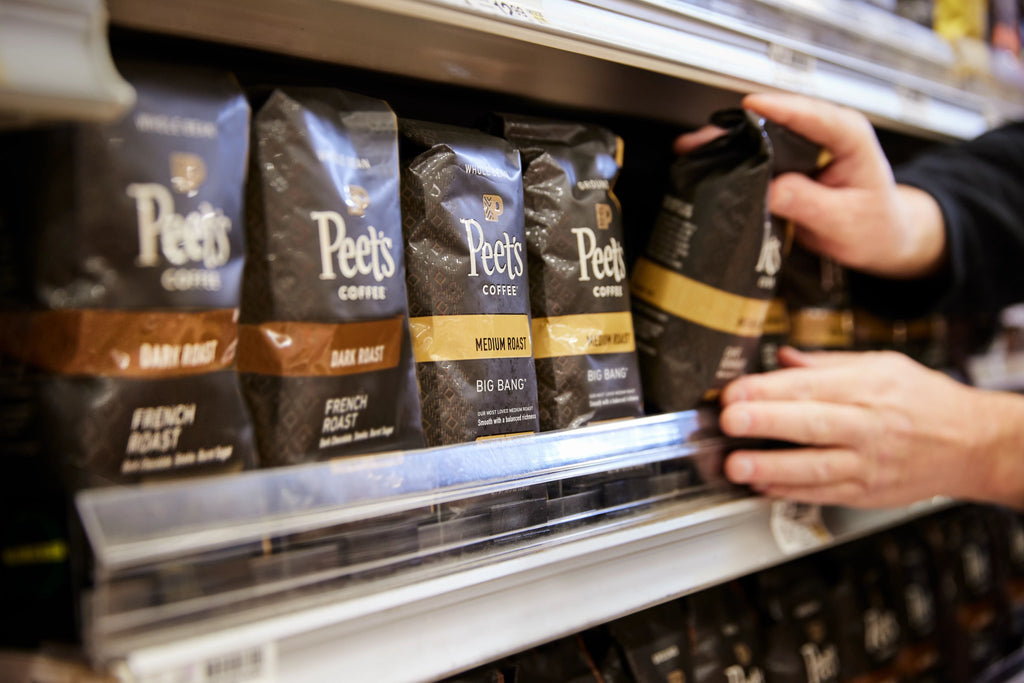
What to Look for In Coffee: Buying Coffee Beans
Picture this: You’re at the market, doing your regular grocery rounds. As you pick up produce, meats, dairy, and bread, what do you check for? Freshness. The fresher the product, the better it is. This is a universal truth for many foods—and that includes coffee.
What to Look for When Buying Coffee Beans
When it comes to brewing great coffee at home, your beans matter—a lot. But standing in the store aisle or browsing online, the options can be overwhelming. Should you choose a single origin or a blend? What roast level is right for you? And how do you know if the coffee is actually fresh? In this guide, we’ll walk you through what to look for when buying coffee beans—from flavor profiles to roast date—so you can bring home the best bag, every time.
Flavor Profiles
Every coffee tells a story in taste—from chocolatey and nutty to floral, fruity, and spicy. These flavors aren’t added—the tasting notes come from the beans themselves, shaped by where they’re grown, how they’re processed, and how they’re roasted. Like your coffee bold and smoky? You might love a dark roast from Latin America. Prefer something bright with citrus or berry notes? East African coffees are known for their lively acidity and floral aromatics. The best way to find your ideal flavor profile is to experiment. Taste a few different origins, take note of what you love, and let your palate guide you.
Arabica or Robusta Coffee Beans
Most specialty coffee—including all Peet’s coffees—is made from Arabica beans. Grown at higher elevations and harvested with care, Arabica tends to offer more complex, nuanced flavors—think fruit, florals, chocolate, and nuts. Robusta, by contrast, is hardier, higher in caffeine, and more bitter. It’s often used in commodity coffees and instant blends. If you’re shopping for quality and taste, Arabica is the clear winner. It’s the bean that lets flavor shine, whether you’re sipping a single origin or an espresso blend.
Single Origin or Blend?
Single-origin coffees come from one country, region, or even a single farm. They showcase the distinct characteristics of that place—like the floral sparkle of an Ethiopian or the chocolaty depth of a Guatemalan. If you’re interested in tasting terroir (yes, just like wine), single origins are where to start.
Blends, on the other hand, are curated combinations of beans from multiple origins. Roasters blend to create balanced, consistent flavor—often more approachable, and great for espresso or daily brewing. Whether you choose a single origin or a blend depends on what you’re after: a sense of place, or a beautifully rounded cup.
Desired Roast Level
Roast level has a major influence on flavor—and everyone’s taste is different.
· Light roasts preserve the bean’s original character. Expect bright acidity, delicate aromatics, and layered complexity—especially in coffees from Africa or Central America.
· Medium roasts strike a balance, highlighting body while still letting origin notes come through. They’re smooth, rich, and versatile (and the go-to roast level for many of Peet’s signature blends).
· Dark roasts develop bold flavors and a deep, roasted intensity. Look for smoky, bittersweet, or spicy notes, especially in blends built for espresso.
No roast level is "better"—it's all about what you enjoy in the cup.
Why does freshness matter for coffee?
Unlike, say, produce or dairy, coffee is technically shelf-stable, meaning that it won’t technically spoil over time. It won’t go sour like milk or turn brown like that bag of lettuce you bought … how many weeks ago? But just because the beans don’t actually spoil doesn’t mean old beans are as good as fresh ones. They go stale.
The moment coffee beans come out of the roaster with their different levels of coffee roast, they are at their peak. Caramelization is at the perfect point of development, and the oils are at their most complex and aromatic. When you grind and brew freshly ground beans, you are getting the full complement of flavors and aromas those beans have to offer.
Over time, that complexity is lost. Aging is a subtractive process. The oils go dull and flat, and the more delicate aromas dissipate. The beans’ signature flavors lose their luster. Brazil’s signature chocolate notes, Ethiopia’s wildly floral aromatics, Costa Rica’s zingy citrus, all will slowly fade as the beans age. After a while you’re left with is beans that can taste woody or bitter. Odds are you’ve had a cup made from beans like that more than once.
Alfred Peet knew that it's crucial to have the shortest time possible between the roaster and the customer. That’s why we send out our coffees immediately after roasting, either directly to your doorstep if you order here on our website, or via our own fleet, whisking those freshly roasted beans to our coffeebars or straight to grocery shelves.

How do I know how fresh my coffee is?
Quite honestly, for a lot of coffee you see in the grocery store, you simply don’t. At best, it might be marked with an expiration date, but that date could be quite a long time out—literally years—from when it was roasted.
That’s why we mark every bag of Peet’s with its roast date. By measuring freshness in days, not months or years, we hold ourselves to higher freshness standards than others.
The closer to the roast date, the fresher the coffee. The roast date on our bags always tells you exactly how fresh the coffee inside is, so be sure to check it on the bag. And if you’ve had a bag lying around a while, make sure to check it’s still fresh.

How do I keep coffee beans fresh?
Some people store their coffee beans in the refrigerator or freezer, but that’s not what we recommend. If you want to keep your coffee beans fresh, they should always be kept in an airtight container, at room temperature, and away from sunlight to retain optimum freshness. Storing the coffee this way will help retain the beans’ flavors and aromas, but it can only stave off the forces of staling so long. When in doubt, get yourself a nice, freshly roasted bag of Peet’s.


